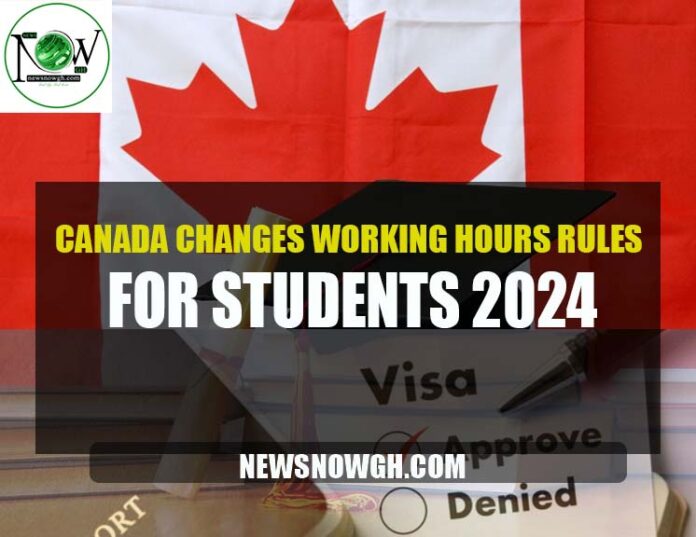Canada Changes Working Hours Rules for Students—Canada Study Visa 2024
In this blog, we shall examine the most recent modifications to the regulations governing student employment hours. Find out how these adjustments can affect your Canadian academic career. Let’s get started with the 2024 revisions to the working hour regulations for students with study visas to Canada.
Implications and Analysis
Although the main goal of this program is education rather than work, the foreign student program in Canada has long been acknowledged as a means for people to pursue higher education in a diverse and friendly environment. Aiming to create a balance between academic endeavors and real-world work experience, Canadian Immigration Minister Mark Miller recently announced significant adjustments to the working hour regulations for overseas students.
Overview of Changes
Changes to the working rights of individuals on study visas were announced by Minister Mark Miller on April 30, 2024, which changed the situation for foreign students studying in Canada. The foreign student community was informed of this news, highlighting how crucial it is to be up to date on current developments.
The major change permits international students to work off-campus for up to 24 hours each week, which is a significant increase above the prior cap of 20 hours. This is a significant policy change that takes into account students’ needs for financial security while upholding their academic obligations, and it will go into force by the autumn intake.
Rationale and Considerations
The choice to improve international students’ working privileges is the result of a careful consideration of their experiences and difficulties as students in Canada. The government’s dedication to assisting students with their financial well-being while upholding the study visa program’s educational goals is emphasized by Minister Miller’s announcement.
“Canada aims to maintain a balanced approach that prioritizes academic success by aligning with similar regulations in countries like Australia, where students also have defined work,” the statement read.
Impact on Students
For international students who are seeking to enroll in Canadian universities or who are already enrolled, the increase in the number of hours that can be worked from 20 to 24 hours per week has significant consequences. With more options to find part-time work, this change helps students become more financially independent and improves their general well-being.
Additionally, the change would lessen some of the financial strains that international students experience, allowing them to concentrate more on their studies and completely immerse themselves in the Canadian academic system.
Comparative Analysis with Australia
Comparing Australian student visa laws with those of other countries provides an important context for understanding the global environment of international education policy. Similar to Canada, Australia places limitations on the weekly hours that international students can work. This connection highlights a larger trend in destination nations where overseas students are balancing their academic goals with real-world work experience.
The subtle differences between these strategies highlight how labor market dynamics and international education are intertwined.
Considerations for Academic Success
International students must carefully balance their obligations to their studies and their jobs, even though the longer workdays may help them financially. To successfully navigate this new policy, students must prioritize their studies and seek guidance from academic advisers or Support Services. Going above and beyond the recommended hours of work could potentially undermine the primary goal of academic achievement.
Policy Implementation and Timeline
The schedule for putting these reforms into effect, which focuses especially on the autumn 2024 intake, highlights how proactive the Canadian government is in meeting the changing demands of overseas students. The gradual implementation enables organizations and learners to get ready for the change, guaranteeing a seamless adjustment to the updated working hour regulations.
This methodical approach demonstrates a dedication to openness and stakeholder participation in the application of policy.
Conclusion
A major shift in the field of international education policy can be seen in the most recent revisions to the working hour regulations for foreign students with study visas to Canada. The declaration made by Minister Mark Miller demonstrates Canada’s commitment to creating an environment that is supportive of international students’ academic and personal development and shows a sophisticated awareness of the difficulties they confront.
These adjustments have the potential to improve international students’ overall experience studying in Canada by finding a balance between financial independence and academic success. To guarantee that the goals of the study visa program are fulfilled and that students are allowed to succeed in their academic endeavors, ongoing monitoring and assessment will be crucial once the policy comes into force.


